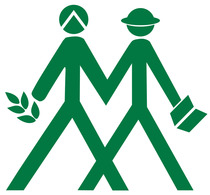About
-
Headquarters
Kalpetta, Kerala
-
Since
1987
RASTA (Rural Agency for Social and Technological Advancement), a non-profit organisation founded in 1987 in Kerala, India, has evolved over 28 years to extend its services for Read morerural development and organisational growth. It focuses on marginalised groups, including indigenous people, small farmers, women, and children, and aims to preserve the environment. RASTA's vision is to create a self-reliant and ecologically conscious society free from discrimination. Their mission includes promoting eco-friendly technologies, providing microfinance, educating and training women and school dropouts, promoting organic agriculture, collaborating with government efforts for rural development, preserving traditional healing practices, protecting the environment, and engaging youth in rural development.
Demographies Served
Programs
-
Solar Home Lighting Systems
Electricity networks in Wayanad are primarily centred around urban areas, posing a challenge for extending power to remote rural regions due to their geographical isolation. To address this issue and provide affordable, sustainable energy solutions for indigenous and economically disadvantaged communities, the adoption of solar energy has become pivotal. However, it has historically faced obstacles such as high initial costs, limited technology providers, and insufficient support from central energy ministries. The Barefoot College's innovative approach involves training local women to become solar engineers, enabling them to install and maintain solar systems in underserved areas. This initiative has made significant progress in Wayanad, with 145 solar systems installed by these engineers in less-developed areas. Still, their mission continues as households in remote locations near Muttil are identified for future solar system installations.
-
Women Empowerment
StateDespite a high literacy level in Kerala, women face significant challenges, including limited freedom and prevalent dowry systems that often lead to financial difficulties for families marrying off their daughters. Disturbing census data from 2001 indicates a declining sex ratio among girl children aged 0-6 in the state, where the overall gender ratio had been relatively higher. Wayanad district, in particular, has consistently had a low sex ratio, aggravated by farmer suicides, which left women with the burden of supporting their families. RASTA has been dedicated to women's empowerment and collective action, focusing on initiatives like Self Help Groups (SHGs) that have transformed the lives of rural women by providing financial stability and training in income-generating activities, such as mushroom cultivation, goat and cattle rearing, tailoring, handicrafts, and crop cultivation, addressing the broader issue of gender discrimination.
-
Integrated Water Resource Management
RASTA initiated an Integrated Water Resource Management project with the Confederation of Indian Industries (CII) and Balal Panchayat to address persistent soil erosion, water scarcity, and reduced agricultural productivity in a hilly and underprivileged region. The project, spanning from February 2013 to June 2015, aimed to enhance the livelihoods of local farmers by improving agricultural production systems, providing irrigation facilities, and promoting ecological and organic farming. Through the construction of nine check dams and refurbishment of panchayath structures, the project significantly increased groundwater availability, improved agricultural productivity, and ensured sufficient drinking water for the community. A second phase is planned for expansion into other regions starting in August 2015.
-
Sustainable Agriculture
This program includes initiatives like farming on leased land by 50 women's groups, establishing 20 decentralised nurseries, expanding scented rice cultivation, using System of Rice Intensification (SRI) method to enhance rice productivity, assisting 715 families in acquiring milch cows, developing bio-control agent applications to combat black pepper wilt disease, promoting Azolla cultivation, and establishing a pathogen detection and bio-control agent production laboratory. They also constructed NADEP model compost tanks at 2100 farms between 1996 and 2005. In response to soil erosion caused by poor land management practices, RASTA launched watershed projects in Wayanad district in 1994, involving activities such as earthen bunds, rainwater-harvesting tanks, providing planting materials, growing fodder grass, supplying milch cows to needy families, and supporting compost tanks to conserve soil fertility and improve agricultural practices in the region.
-
Supporting Indigenous Communities
In Wayanad district, tribal communities, comprising 17% of the population, face challenges such as landlessness, unemployment, food insecurity, and a lack of basic facilities due to the influx of migrants. Over the past 15 years, RASTA has undertaken several initiatives to uplift these tribal communities, including the construction of five community centres in remote hilly areas with the support of the Ministry of Tribal Affairs, providing learning and cultural spaces. They've also built housing for 120 tribal families, established 426 UNDP model sanitary latrines, and conducted leadership training for 20 tribal women, with two of them becoming elected members of local self-government. Furthermore, RASTA has formed 84 SHGs among tribal communities, involving nearly 890 women, with total savings of Rs. 22,50,000 between 2000 and 2005, aimed at improving the overall well-being of these marginalised communities.
Leadership Team
-
T. K. Omana
Director
-
Danesh Kumar
Program Manager
-
BHAGYALAKSHMI
Vice President
-
P ACHAPPAN
President
Demographics & Structure
-
No. of Employees
51-100
M&E
-
Internal, External Assessors
No
Policies
-
Ethics and Transparency Policies
No
-
Formal CEO Oversight & Compensation Policy
No
Political & Religious Declarations
-
On Affiliation if any
No
-
On Deployment Bias if any
No
Registration Details
-
PAN Card
AAATR2697G
-
Registration ID
125/87
-
VO ID / Darpan ID
KL/2009/0019895
-
FCRA
52980141
-
CSR Registration Number
Not Available
About
-
Headquarters
Kalpetta, Kerala
-
Since
1987
Demographies Served
Location
Political & Religious Declarations
-
On Affiliation if any
No
-
On Deployment Bias if any
No
Other Details
-
Type & Sub Type
Non-profit
Society

